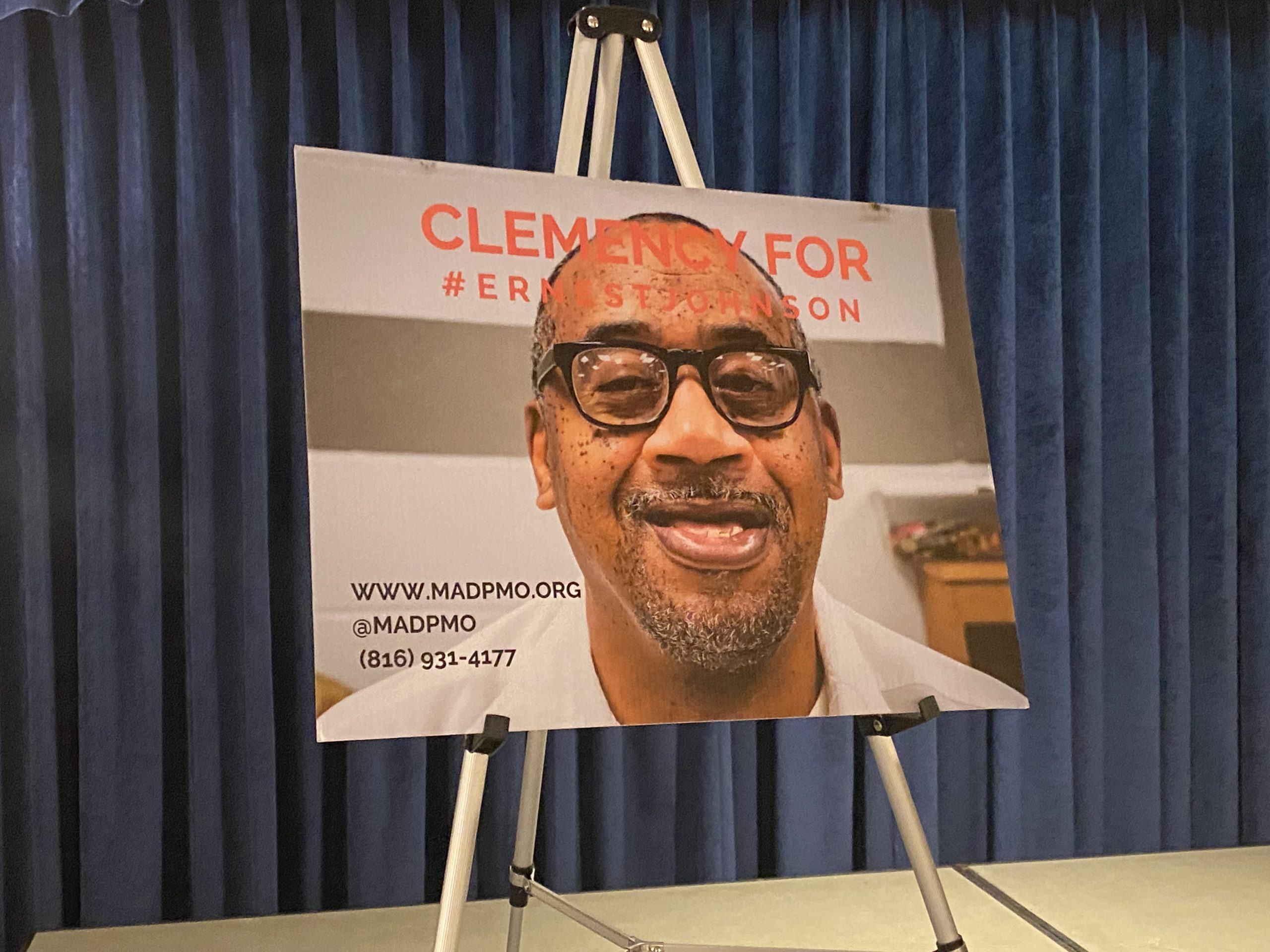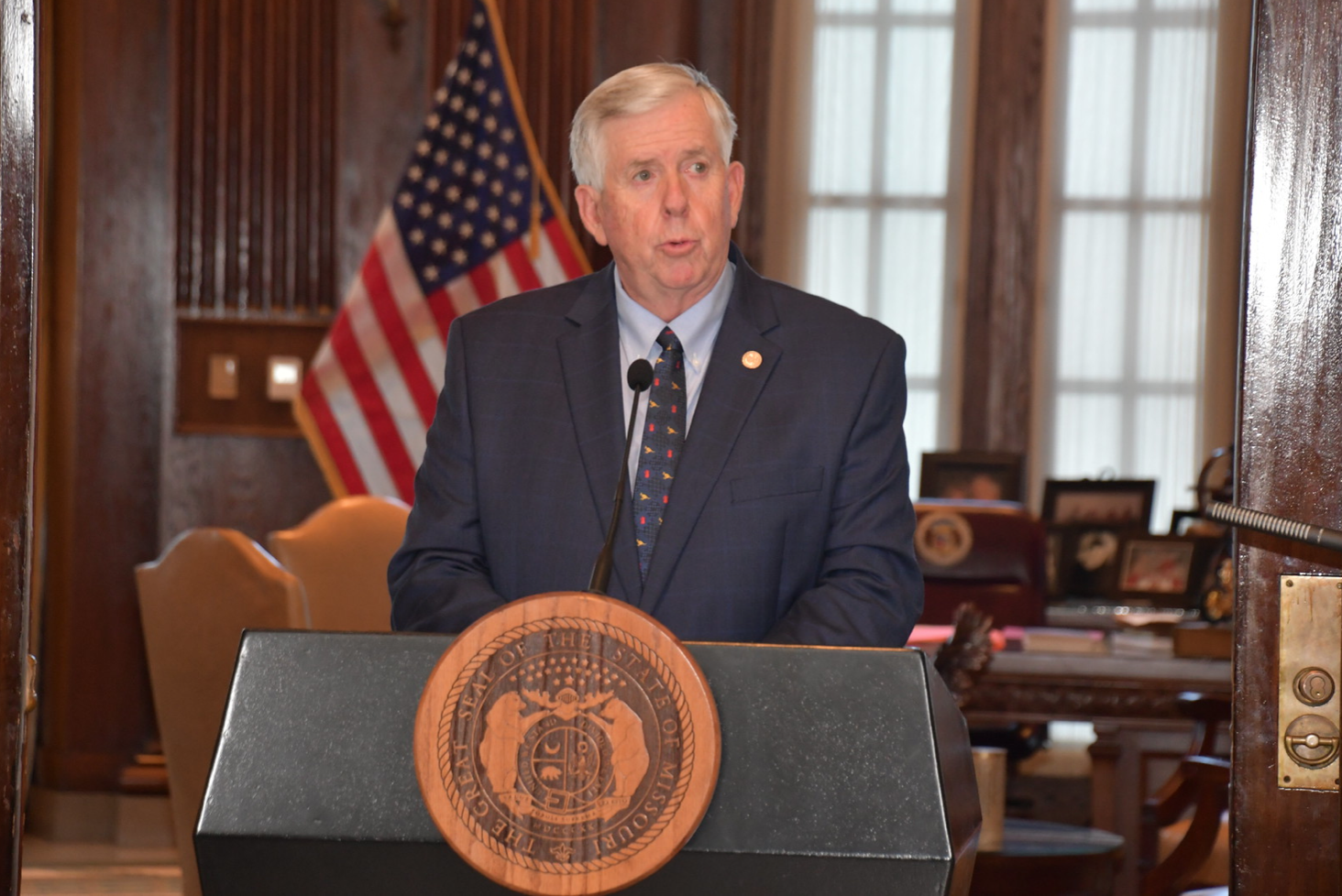As thousands call for clemency for Ernest Johnson, Gov. Mike Parson said he’s clearing the backlog of clemency petitions the Governor’s Office has received.
Parson said he’s on track to render more clemency decisions than any other governor in the past four decades. The Republican chief executive has granted 168 pardons, 13 commutations, and denied 1,134 requests for clemency, according to his office, with 2,376 pending applications.
His office reported a backlog of more than 3,5000 applications when Parson assumed office in 2018
“Clemency is an act of mercy for individuals who have redeemed themselves and demonstrated a change of lifestyle,” Parson said. “We do not take clemency decisions lightly, and we will always practice our due diligence and conduct thorough reviews to ensure we are making the right calls as we continue our efforts to give closure to these individuals who have waited too long.”
Parson said he directed his staff to get requests before him as quickly as possible to provide as many answers as possible.
Johnson, who has been convicted of killing three people during a convenience store robbery in 1994, had about one-fifth of his brain tissue removed in 2008 to treat a brain tumor. The tumor was not fully removed, and he suffers from epilepsy and “painful seizures,” his attorneys have said.
Representatives from the ACLU of Missouri, Missouri State Conference of the NAACP, and Missourians for Alternatives to the Death Penalty (MADP) gathered in the Capitol Wednesday for a petition drop seeking clemency for Johnson, delivering an estimated 25,000 signatures to Parson’s office.
“We’re not doing this because he’s not guilty of a crime, but because he’s intellectually disabled and shouldn’t be eligible for execution,” MADP State Director Elyse Max told The Missouri Times. “We’ve seen resounding support from citizens in Missouri that believe that Johnson can live out his life incarcerated. … We are praying that the governor shows mercy through an act of clemency.”

The Missouri Supreme Court last month found Johnson failed to prove his ineligibility for the death penalty and denied his motion to be executed by firing squad rather than lethal injection; Johnson said the drug used in executions, pentobarbital, would react with a tumor in his brain and cause seizures.
Former Missouri Supreme Court Judge Michael Wolff recently backed Johnson’s plea, noting his own dissenting opinion when the state’s high court decided the case in 2008.
“I still believe that the trial court made a critical error in the allocation of the burden of proof in this case, but I am also even more convinced today in light of additional evidence that has been developed that Mr. Johnson is a person with intellectual deficits so significant that a reasonable jury would not have recommended execution,” Wolff said. “Under constitutional standards, his execution would constitute cruel and unusual punishment in violation of the constitution as interpreted for decades in U.S. Supreme Court decisions.”
Missouri allows the death penalty — by lethal injection or gas — which is overseen by the Department of Corrections. The death penalty can be imposed on individuals who are at least 18 years old and found to have committed first-degree murder, a class A felony.
The last person executed in Missouri was Walter Barton in May 2020 — the first in the U.S. amid the COVID-19 pandemic.
There are 20 people on death row in Missouri, according to MADP.
Johnson’s execution is scheduled for Oct. 5.

Cameron Gerber studied journalism at Lincoln University. Prior to Lincoln, he earned an associate’s degree from State Fair Community College. Cameron is a native of Eldon, Missouri.
Contact Cameron at cameron@themissouritimes.com.

























